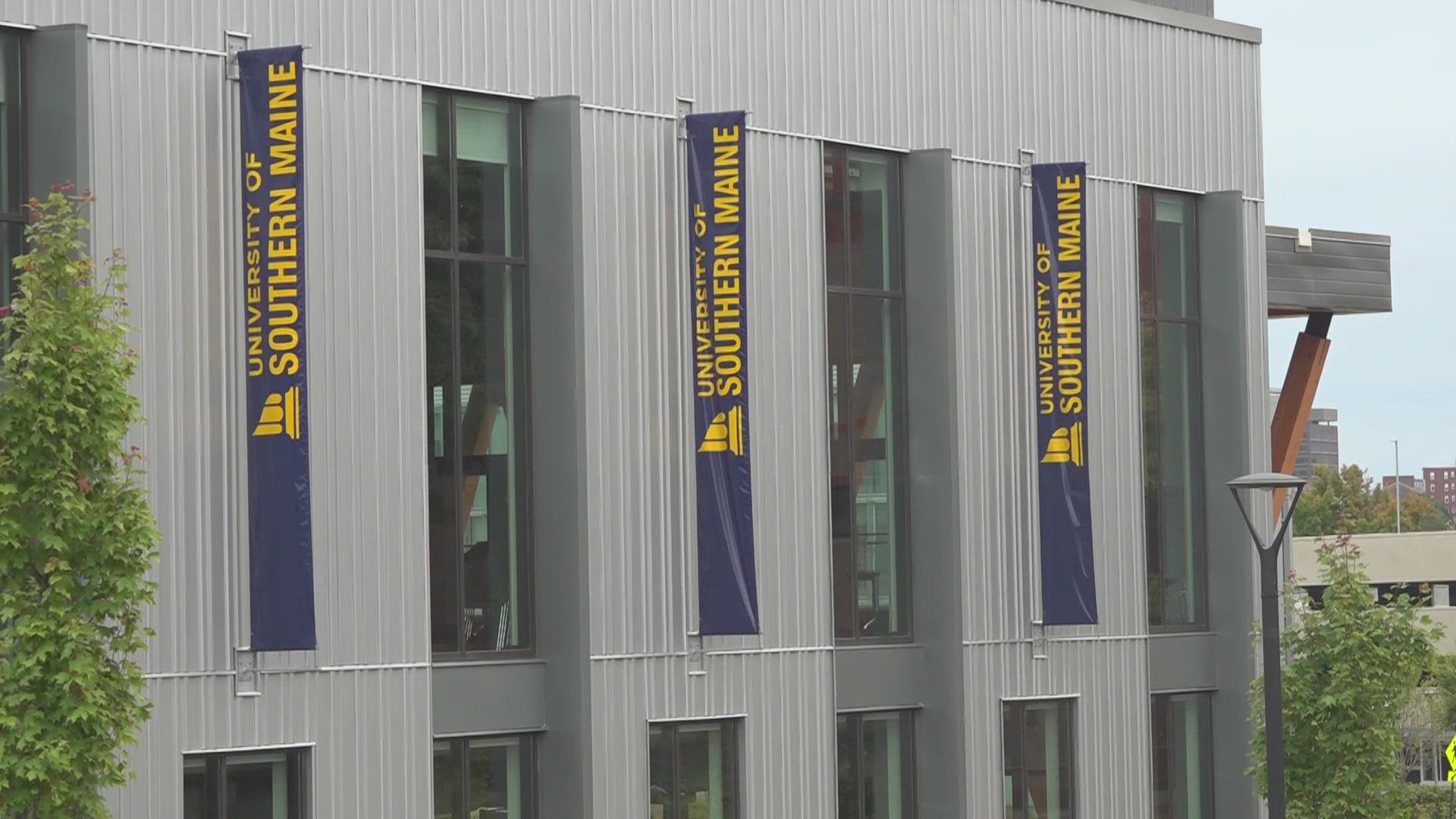PORTLAND, Maine — Faculty and staff who work in the University of Maine System are currently working without new labor contracts, and many employees within the system said they are barely able to make ends meet with the pay afforded in their current contracts.
With negotiations between UMS and various bargaining units and their unions still ongoing, employees and union representatives said their concerns about wages cannot be ignored.
UMS has seven bargaining units. The system's labor relations staff is concurrently negotiating agreements with four of those units:
- The Associated Faculties of the University of Maine System, or AFUM
- The Universities of Maine Professional Staff Association, or UMPSA
- Associated Clerical Office Laboratory Technical Staff of the Universities of Maine, or ACSUM
- The University of Maine Graduate Workers Union, or UMGWA, which is newly formed
Contracts for the bargaining units that are currently tied up in negotiations expired in June.
The UMS Board of Trustees chair spoke Tuesday during a board approval hearing at the legislature.
"The high quality of UMS rests on the hard work of dedicated and excellent faculty, staff, and administrators," Chair Trish Riley said. "Recruiting and retaining personnel is a high priority of the Board, and we know that higher wages would support those efforts."
But despite Riley and other trustees being aware that increased wages would improve retention and overall employee satisfaction, ACSUM President Brian Berger said the board has not come to the negotiation table with an offer that is sufficient or feasible for staff members to survive in this economy.
"We feel that it's important for the taxpayers of Maine and other people to be aware of the situation at the university as a partially publicly funded school," Berger said.
Berger said several union members have reported they are working seven days a week and still having to do things like donate plasma to get by.
To put things into perspective, Maine ranks No. 46 in the nation for higher education and support staff, with the average wage at $39,061. (To view national averages for higher education faculty pay click here.)
Miles Stevens is just one of many staff members who work within the UMS. She functions as an administrative specialist in the registrations scheduling services office.
Her job is to support students, but the money she earns makes it nearly impossible for her to support herself.
"I make $16.74 an hour," Stevens said. "Budgeting has just become what can I afford and what can I afford to put off."
Staff members across the UMS brought their concerns before the Maine Legislature on Tuesday during the Board of Trustees approval hearing, but each of them was interrupted and shut down.
"The concerns raised at the Legislature this week have not been recently raised to System leadership or the Board, including at its public meeting this week in Farmington," Samantha Warren, UMS director of government and community relations, said.
Berger said ACSUM represents 480 UMS employees. The union issued a survey to its members, and which 300 employees ACSUM members represents responded to survey. They shared their stories and hardships they have experienced over the last three years.
"Over 100 people have experienced food insecurity since 2021," Berger said. "Almost a quarter of our members have experienced housing insecurity, and four people were homeless within that same time frame."
Warren said overall funding UMS receives from the state has increased, but the state funding covers a smaller share of UMS's budget than it has in the past.
"As a public university system, our ability to improve wages and working conditions without overburdening Maine students and their families in the form of unreasonable tuition increases depends on our state funding, which has historically not kept pace with inflation or our growing bargained compensation costs," Warren wrote in a statement.
At Tuesday's meeting, Riley shared insight about how state funding has changed over the years.
"It is not easy work as we try to balance quality, innovation and affordability. We are well aware that today the State of Maine, through the Governor’s budget and legislative appropriations, provides about 45% of our operating budget while students shoulder an equal share," Riley said. "We are deeply grateful for the recent increases in State appropriations, but we know we are in a different era from the times not that long ago when the State provided over 70% of that important investment."
Even so, with negotiations still ongoing, many employees are still hoping trustees will somehow hear their plea for better pay.
Editor's note: The original version of this story said that funding UMS receives from the state has "dropped tremendously." That statement was incorrect. Funding UMS receives from the state has increased, but the state covers a smaller share of UMS's overall budget than it has in the past.

